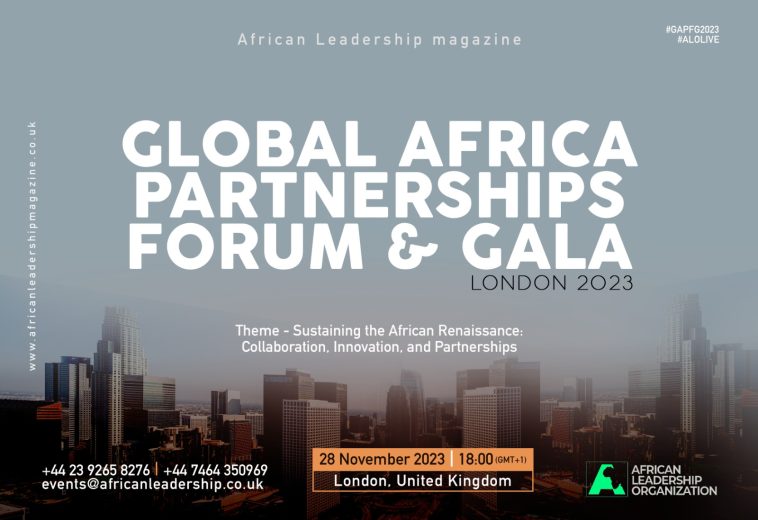A society’s development and inclusivity are often reflected in its participation in sports, and female sports are currently experiencing a noteworthy rise in popularity across Africa. African women have made significant strides in a variety of sports disciplines over the past few decades by shattering stereotypes, embracing athleticism, and achieving incredible accomplishments without minding the colour of their skin or backgrounds. It was Serena Williams who aptly asserted, “It doesn’t matter what your background is or where you come from; if you have dreams and goals, that’s all that matters.”
Recently, the world has seen a boom in female sports in Africa, with notable triumphs and historic accomplishments as they have made significant contributions to sports on a global scale, from soccer to tennis, from gymnastics to athletics. This article will journey through the recent victories that have subsidised the rising attainment in the African female sports scene, the challenges hampering the growth, and viable strategies African leaders can practice to promote the female sports world.
Africa has seen a significant development in women’s athletes. This is because the visibility and advancement of female athletes across the continent have been aided by growing attention to gender equality and programmes to empower women in various sectors.
Female athletes are now seen as role models, encouraging young girls to pursue their sporting ambitions and dispelling myths about women’s sports participation. “Being a woman in sports is an opportunity to create representation for future generations. Sports has impacted my life in ways that I could never imagine by giving me a platform to instil confidence and learn invaluable skills through the sport of basketball,” says Coco Sauve, Account Executive of the Bandits Sports & Entertainment (BSE).
The next generation of female athletes has been greatly influenced by the emergence of African athletes as worldwide sporting icons. Athletes with outstanding talent and notable achievements include Tobi Amusan and Blessing Okagbare (athletics, Nigeria), Caster Semenya (athletics, South Africa), and Asisat Oshoala (football, Nigeria). These few and more athletes have become role models in their respective sports. These successes have disproved gender norms and broken down prejudices, demonstrating the power of African female athletes on the international stage.
As athletes, African women are becoming more dominant in international competitions, as seen by recent successes in a variety of sports. African countries constantly produce elite runners who have won many medals at competitions like the Olympics, World Championships, and Commonwealth Games. From sprinters Marie-Josée Ta Lou (Ivory Coast) and Tirunesh Dibaba (Ethiopia) to long-distance runners Vivian Cheruiyot (Kenya) and Elaine Thompson-Herah (Jamaica) at the African Athletics Championships, and Blessing Okagbare (Nigeria), who took home the gold in the 100-metre event. They constantly outperformed their opponents, showcasing the talent seen in African women’s sprinting with their extraordinary speed and tenacity.
Also, Kenyan distance runner Hellen Obiri experienced significant success. She won gold medals at the World Athletics Championships in the 5,000 and 10,000-metre events. Obiri’s exceptional performances highlighted the tenacity and talent of African female long-distance runners.
In football, the 2023 edition of the African Women’s Cup of Nations featured the top football teams from the continent. The Super Falcons, the women’s national football team of Nigeria, won the championship for the eleventh time, showcasing their power in women’s football in Africa. In addition to bringing them delight and honour, their outstanding performance raised the profile and popularity of women’s football in the area. Asisat Oshoala, Ashleigh Plumptre, Onome Ebi, and many other players have improved the Nigerian football ecology.
In basketball and tennis, women’s success also increased significantly. The Senegalese national basketball team won the FIBA AfroBasket Women’s competition in the 2023 edition. Their outstanding performance demonstrated the talent and potential of African women in basketball. From basketball player Nneka Ogwumike of Nigeria to tennis player Naomi Osaka of Japan, all of whom have African ancestry, African women are continually raising the bar and demonstrating that they are formidable competitors.
In combat sports, Jeremia Nakathila of Namibia created history when she became the first African woman to win a world title in the lightweight division. Her victory not only demonstrated her boxing skills but also encouraged other women on the continent to participate in combat sports.
These conquests in 2023 represent turning points in the growth of women’s sports in Africa. They give African women a platform for further development and recognition while showcasing their enormous talent and potential. Future generations are motivated to overcome obstacles and advance women in sports by these outstanding athletes’ accomplishments.
Despite these successes, obstacles still stand in the way of continued development. The development of female sports in Africa is still being hampered by the expansion and improvement of women’s sports across Africa. Many African countries lack adequate sports infrastructure and facilities for female athletes, limiting their participation and access to competitions. Socio-cultural barriers, a lack of funding, limited media coverage, and gender pay gaps further hinder the growth and competitiveness of female sports.
Female athletes also receive less compensation and prize money than male athletes, further deterring them from pursuing sports careers. Inadequate gender-specific policies and programmes, such as targeted development programmes and scholarships, also contribute to these challenges. Insufficient female representation in sports governance structures limits their influence and ability to address gender-specific challenges effectively. Increased female representation is crucial for advocating for policy changes, funding, and promoting inclusivity within African sports.
Strategies African Leaders Can Roll Out for the Continuous Triumph and Development of Women’s Sports in Respective Countries
Proper Funding
Increased funding is a possibility for African leaders to support the growth of women’s sports. This includes funding for training facilities, gear, coaching, and programmes that focus on the development of female athletes as athletes.
Access to Educational and Training Resources
The development of female sports in Africa has been greatly aided by the availability of training grounds and educational resources. In parallel with efforts to increase girls’ access to education, sports programmes should be more accessible, allowing young girls to explore their interests in athletics. Talented individuals should have the resources to hone their abilities and pursue success at both the national and international levels as more educational institutions include sports in their curricula and provide access to training facilities.
These strategies can also be used by African leaders to spread the word about the value of female sports involvement. Leaders can inspire more girls and women to participate in sports by stressing the advantages of athletics for women, such as enhanced health, empowerment, and job prospects.
Enhancement of Participation and Development
An expansion in the participation and development of various sports is a critical component of the positive development of female sports in Africa. African women should be encouraged to actively participate in sports, including football, athletics, basketball, rugby, cricket, and others that have historically been dominated by men. This development will be attributed to several things, including improved access to sporting venues, grassroots activities, and increasing awareness of gender equality.
Supportive Recognition and Support from Various Governing Bodies and Organisations
There should be space for recognition and support from various governing authorities and organisations to promote the development of female sports in Africa. African nations are taking more initiative to advance gender equality in sports, which has increased funding, improved infrastructure, and increased chances for female participation.
This has opened up a variety of sporting disciplines for more girls and women, ultimately building an inclusive and empowering society. For instance, women’s football has been actively promoted by groups like the Confederation of African Football (CAF), which has led to the creation of leagues, involvement in international competitions, and increased representation in coaching and administrative positions. African female footballers are becoming more skilled thanks to teams like Nigeria’s Super Falcons, who have won the African Women’s Cup of Nations a record nine times.
Infrastructure Development
African leaders might spend money on building and upgrading women’s sports-specific facilities and infrastructure. This may entail building facilities such as sports complexes, stadiums, and tournament sites that are welcoming to women athletes.
Partnership with Sporting Institutions
African leaders can work with federations and organisations to prioritise the growth of women’s sports. This can mean teaming up on efforts, forming alliances, and having conversations to develop all-encompassing plans and programmes that meet the unique difficulties experienced by female athletes.
Expand media coverage and sponsorship.
Leaders should compel media outlets and sponsors to devote more time and money to covering women’s sports. More attention can be brought to female athletes’ accomplishments by marketing them through television, social media, and advertising. This will help raise their profiles and draw in further funding. The expanded media coverage is a key element driving the expansion of female sports in Africa. This enhanced coverage also draws assistance from the public and commercial sectors, spurring future expansion.
Mentoring and role models
By simply highlighting their accomplishments and sharing success stories, leaders may actively support and promote female athletes as role models. Mentorship programmes can also be formed to offer advice and assistance to young female athletes, assisting them in navigating the sporting world and maximising their potential.
These trailblazers represent the idea that brilliance has no gender bounds and acts as beacons of hope. Blessing Okagbare, a seasoned track and field athlete from Nigeria, is one such example. Okagbare, who has excelled in many sports, participated in the Olympics, and holds many African records; and Thembi Kgatlana, a South African football player famous for her outstanding talent. Among Kgatlana’s accomplishments are her selection as the African Women’s Footballer of the Year and her key goals in international matches.
Infrastructure Development
African leaders might spend money on building and upgrading women’s sports-specific facilities and infrastructure. This may entail building facilities such as sports complexes, stadiums, and tournament sites that are welcoming to women athletes.
Establishment of supportive policies
Leaders should set up regulations that ensure female athletes have equal possibilities for participation, representation, and compensation. This can include rules that support gender quota systems, encourage gender equity in sports governance, and guarantee equitable media coverage for women’s athletic events.
The glaring feats of female sports in Africa have not only encouraged trends and recent triumphs but have also demonstrated the willpower and tenacity of women in shattering stereotypes and altering the sporting world.


